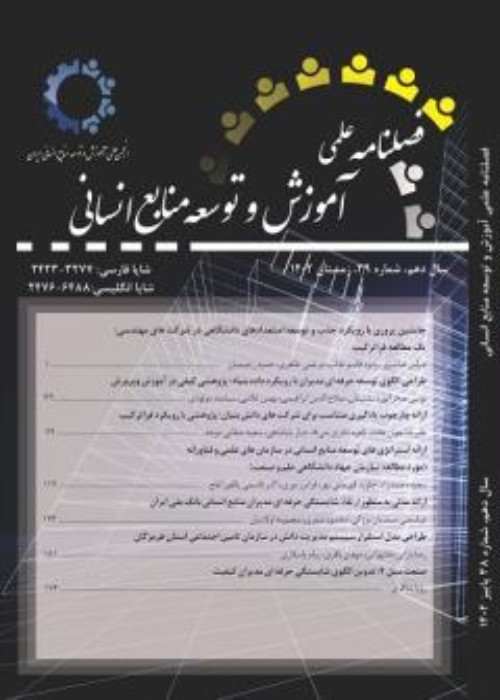Examining teachers' perceptions of virtual in-service training
The purpose of this study is to examine the perceptions of teachers about virtual in-service training. This study was conducted using descriptive phenomenological method. For this purpose, semi-structured interviews were conducted from the targeted target-oriented samples up to the level of information with 18 teachers from primary, secondary and secondary schools. During interviews, teachers expressed their experiences in virtual service teaching, which were analyzed using the seven-step methodology. The 9 main themes were: timely availability of time and space, optimality , Adaptability to educational methods and new technologies, organizational support, content problems, executive problems, evaluation problems, human resource problems; rare infrastructure required. These topics include the accumulation and tabling of topics such as: (Increasing the time of training, comfort, flexibility in training, managing time and place of training, and staffing responsiveness to the client, reducing the cost of executive courses for the organization, reducing travel expenses for teachers, , Technical and computer skills training, learner-centered learning, the ability to combine with other virtual spaces, up-to-date teaching and testing methods, score points in an organization, assessment, organizational enhancement, application and emphasis on cumbersome content, content tuneup, based on Not being in need of measurement, lack of proper supervision, certification rather than emphasis on learning, Discrediting results, creating opportunities for profitability, lack of interaction during training, lack of academic motivation, teacher pressure and problems, lack of literacy). Findings of the research show that the use of a management education system in management education courses can address some of the educational difficulties and intersections in the face-to-face understanding of teachers, including synchronizing education with changes in textbooks, limiting time, place And educational resources and ways to develop new ways of educating teachers such as electronic and virtual methods.
- حق عضویت دریافتی صرف حمایت از نشریات عضو و نگهداری، تکمیل و توسعه مگیران میشود.
- پرداخت حق اشتراک و دانلود مقالات اجازه بازنشر آن در سایر رسانههای چاپی و دیجیتال را به کاربر نمیدهد.



